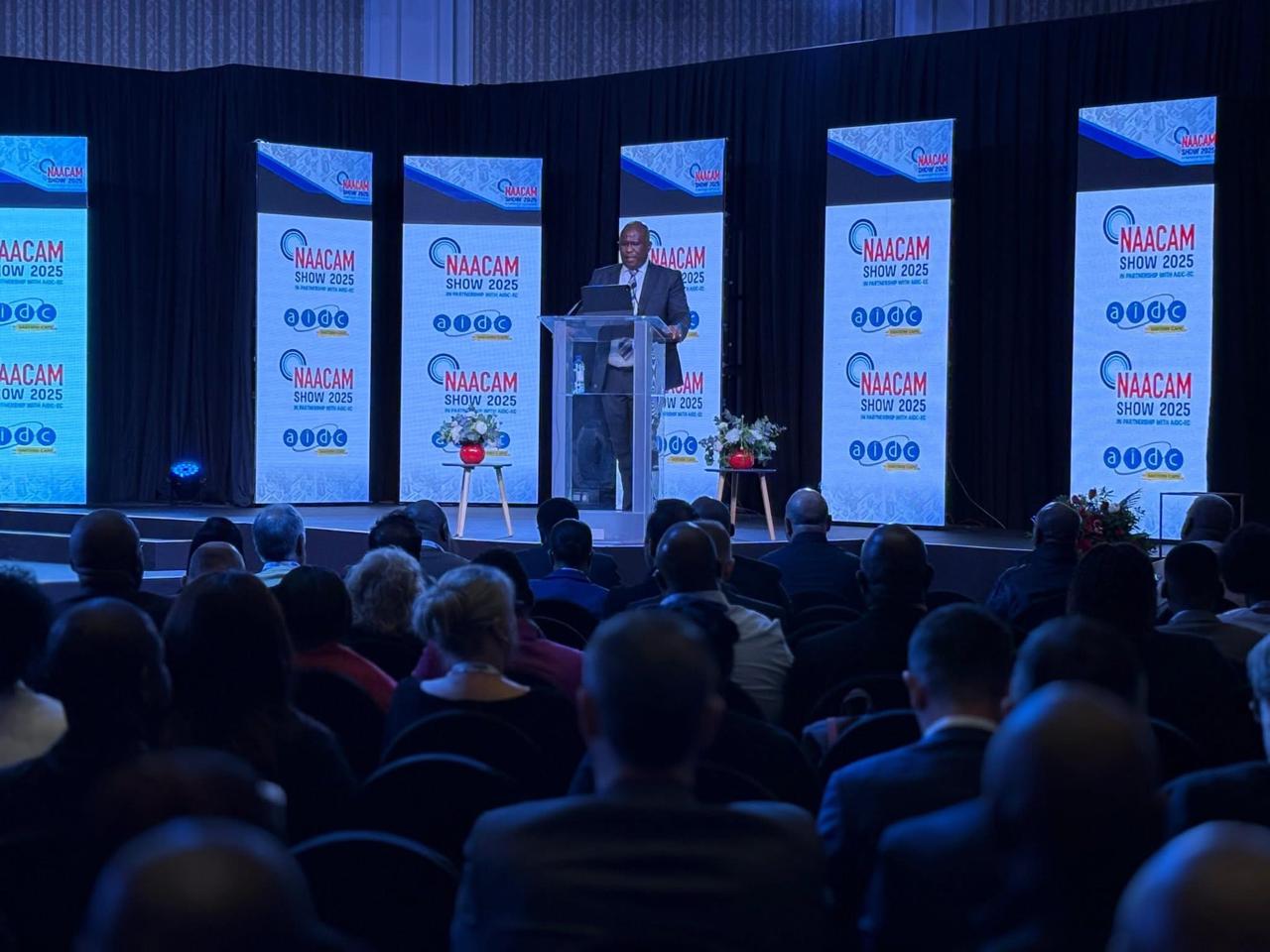By Buchule Putini
Gqeberha, Eastern Cape — Day two of the NAACAM Show 2025 shifted gears from exhibition floor buzz to hard talk on transformation, infrastructure, and the future of South Africa’s automotive sector — with Premier Oscar Mabuyane delivering a rallying call to delegates.
“The automotive sector remains largely male-dominated,” Mabuyane acknowledged, speaking to a packed auditorium.
“However, in recent years, we have seen encouraging growth in the number of women on the shop floors of component manufacturers and suppliers. What excites me most is the increasing presence of women in leadership positions within the industry.”
With the industry now over a century old, the Premier framed women’s visibility at decision-making levels as a sign of progress — but not a destination.
“To truly unlock our potential as a country, we must fully embrace the importance of mainstreaming women’s participation. That is how we will accelerate development and transformation,” he said.
The Premier also tackled the elephant in the factory — logistical bottlenecks and infrastructure shortcomings.
“I am aware that delegates at this show have raised concerns about the need for Transnet and Eskom to improve their efficiency, infrastructure, and capacity to support manufacturing and logistics. These are valid concerns, and I take responsibility for ensuring that government responds meaningfully.”
But Mabuyane insisted the focus could not be on obstacles alone.
“This show is not only about challenges, it is about solutions. We are resilient people. When we bring our heads together, we can overcome any obstacle. This is not the time to dwell on tariffs or lament our difficulties; it is the time for decisive action.”
He positioned the shift from internal combustion engines to electric vehicles as both a disruption and an opening for innovation.
“We cannot afford delays, especially now, as we navigate the transition from combustion engines to electric vehicles — a shift that brings both disruption and opportunity.”
The message was clear: while transformation and infrastructure demand urgent attention, the sector’s survival — and growth — depends on adaptability, inclusivity, and collective will.







